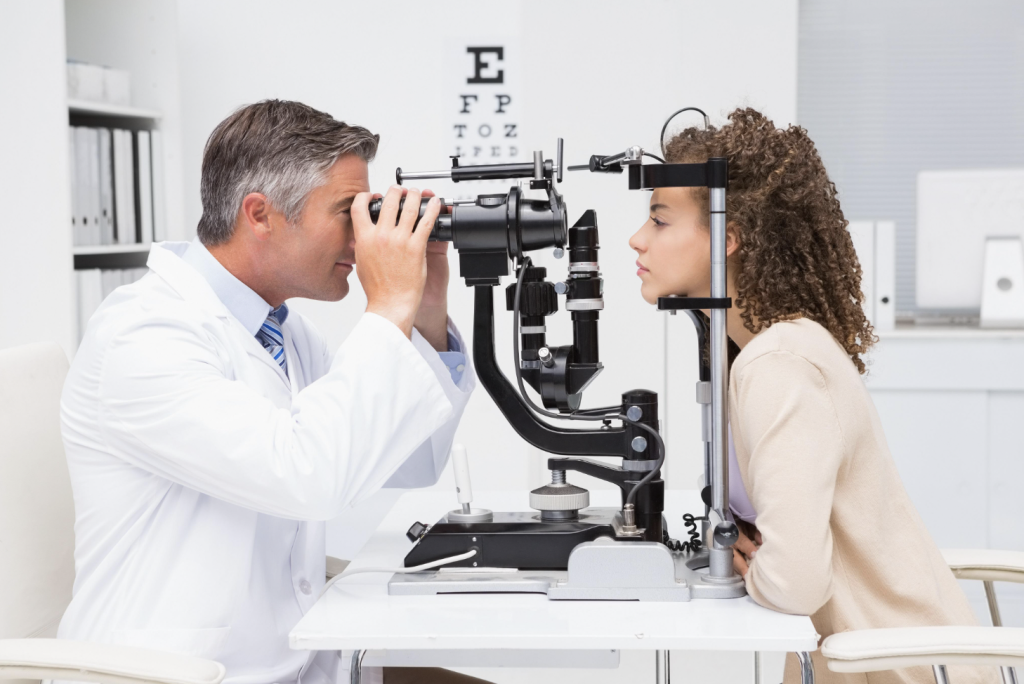Maintaining good eye health is crucial for overall well-being and quality of life. As adults, we rely heavily on our vision for work, leisure, and daily activities. In this blog, we will explore key practices and habits that promote optimal eye health, helping you protect your vision and enjoy a clear perspective throughout your adult years.
Regular Eye Exams
Scheduling regular comprehensive eye exams is the foundation of maintaining healthy eyes. These exams allow eye care professionals to detect potential issues early on, even before symptoms arise. Adults should aim for an eye exam every one to two years, or as recommended by their eye doctor. These exams evaluate visual acuity, screen for eye diseases (such as glaucoma and cataracts), and assess overall eye health. Remember, early detection and timely treatment of eye conditions can significantly improve outcomes and preserve your vision.
Practice Healthy Lifestyle Habits
Adopting a healthy lifestyle positively impacts your overall well-being, including your eye health. Maintain a nutritious diet rich in antioxidants, vitamins (A, C, E), omega-3 fatty acids, and minerals like zinc and selenium. Regular exercise promotes proper blood circulation, which benefits the eyes. Protect your eyes from harmful UV rays by wearing sunglasses with UV protection and broad-brimmed hats when outdoors. Avoid smoking, as it increases the risk of age-related macular degeneration (AMD) and other eye diseases. Finally, stay hydrated and maintain a healthy weight to reduce the risk of developing diabetes, which can lead to vision problems.
Practice Digital Eye Strain Prevention
To avoid digital eye strain caused by the extensive use of digital devices, practice the 20-20-20 rule. Every 20 minutes, take a 20-second break and shift your focus to something 20 feet away. Make sure that your screen brightness, position, and font size are comfortable for your eyes. Keep your eyes moist by using artificial tears to prevent dryness. Additionally, consider using blue light-blocking glasses or screen filters to decrease exposure to the potentially harmful blue light that digital screens emit.
Protect Your Eyes at Work and Play
Whether you’re at work or engaging in recreational activities, protecting your eyes is essential. If your job involves hazardous materials or activities, wear appropriate safety goggles or glasses to shield your eyes from potential injuries. When participating in sports or outdoor activities, wear protective eyewear designed for the specific sport or activity. Avoid rubbing your eyes, as it can introduce dirt, debris, or bacteria, potentially leading to infections. Additionally, ensure proper lighting in your work and home environments to reduce eye strain and fatigue.
Manage Chronic Health Conditions
Certain chronic health conditions, such as diabetes, hypertension, and autoimmune disorders, can affect eye health. Properly manage these conditions through regular medical check-ups, taking prescribed medications, and following lifestyle recommendations. Keep your healthcare provider informed about any changes in your vision or eye health, as these may be indicators of underlying conditions that require attention.
In Conclusion
Maintaining good eye health is a lifelong commitment that significantly contributes to your overall well-being. By prioritizing regular eye exams, adopting healthy lifestyle habits, preventing digital eye strain, protecting your eyes at work and play, and managing chronic health conditions, you can safeguard your vision and enjoy clear sight for years to come. Remember, healthy eyes contribute to a vibrant and fulfilling life.
